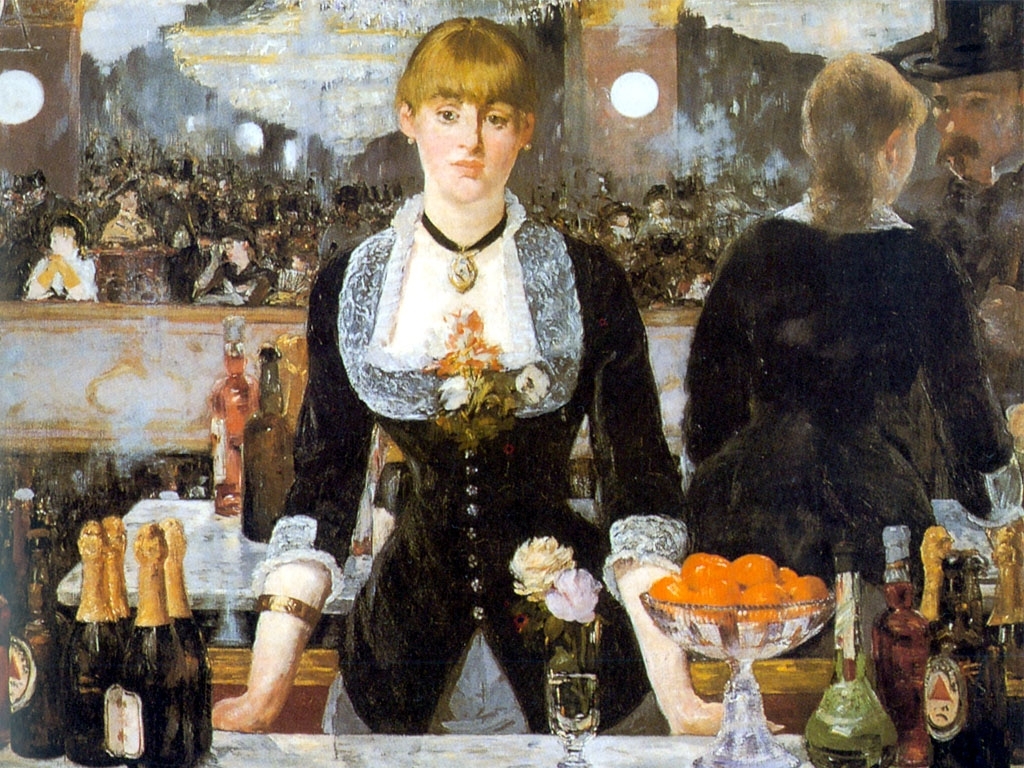I have a friend who is very much into books, just like me. One time, as we were walking between shelves in the local bookstore, I pointed out a Murakami book and told him about the Wind-Up Bird Chronicle.
“It’s the first Murakami I’ve read—probably the last. The story is too dragging. It takes Murakami five pages to start the chapter,” I said, to which he deftly replied with scorn, “Why did you buy the book, then?”
Of course, there was an obvious answer to that: “Because Murakami is Japanese.”
For some reason I’ve always had an innate fascination with the work of foreign authors. (American authors are a part of what I consider “local literature”) It began with the 2007 crime novel, Grotesque, written by Natsuo Kirino, spinning the story of an unnamed girl whose sister and former schoolmate, both prostitutes, are murdered. The novel is divided into eight parts; five are narration, two are excerpts from the journals of the schoolmate and the sister, and the last one is the convicted murderer’s written report.
Months after finishing the book, I found The Wind-Up Bird Chronicle while traveling and bought it on impulse. Unfortunately, I read only half of it. Right now, it’s collecting particulate allergen in my bookshelf. It’s been there since last year.
I guess you’d think I’m crazy if I said I bought another Murakami book, so call me mental.
It’s a surprisingly short novel for Murakami. I was looking for Christmas presents (this early, yes) because I didn’t want to be caught in the “Oh my God, let’s go Christmas shopping together!” epidemic that usually surfaces during the holidays. I found the book After Dark lying inconspicuously between classics and, remembering my love for non-contemporary fiction, I bought a copy . . . on impulse. Again.
 |
| Photo (c) Redesignrelated.com |
Normally, people would have kept the book in a nibbled cardboard box after diving five pages into it, but I was really sucked into the story—or lack of one, since there really isn’t story, by definition. Most of the book is merely a depiction of scenes. There are two main settings: one, in downtown Tokyo, where love hotels sprout in just about every corner; and two, in Eri Asai’s room. The story takes place in the course of one night.
In a Denny’s branch, Eri's sister, Mari, sits alone and reads a large book. Soon afterwards she meets one of her sister’s former classmates, Takahashi. Meanwhile, Eri is asleep in her bedroom, and Murakami takes the reader on a surveillance trip: “We are merely observers and we cannot participate in the story,” he says.
Eri Asai isn’t the protagonist. This is probably the most interesting part. She is simply an object of interest but the whole story revolves around her. Murakami explores the concept of fear and alienation, both in Eri’s and Mari’s perspectives. Mari’s problem is she is too normal; her sister’s is that she is the complete opposite. Hence, their worlds never come together.
The novel doesn’t have Murakami’s trademark eye for lyrical detail and the story is plain if you look at it through a superficial point of view. Mari’s discussion with several characters is very insightful, however. To be honest, I think the fact that I can relate with their thoughts is the reason why I love the book in the first place.
In a conversation between Mari and Takahashi, for example:
"You know what I think?" he says. "That people's memories are maybe the fuel they burn to stay alive. Whether those memories have any actual importance or not, it doesn't matter as far as the maintenance of life is concerned. They're all just fuel. Advertising fillers in the newspaper, philosophy books, dirty pictures in a magazine, a bundle of ten-thousand-yen bills: when you feed 'em to the fire, they're all just paper. The fire isn't thinking, 'Oh, this is Kant,' or 'Oh, this is the Yomiuri evening edition,' or 'Nice tits,' while it burns. To the fire, they're nothing but scraps of paper. It's the exact same thing. Important memories, not-so-important memories, totally useless memories: there's no distinction---they're all just fuel."
I’ve always told myself to be wary of who I am. My memories are a part of that—of my identity, that is—and they are just as important as the attributes that mark me as me: my eyes, my teeth, and my hair. And, ultimately, when you lose everything, all you have left is your identity. You are left with no choice but to feed on that identity, on those memories that made you who you are, and you won’t even have the will to sort them out as good or bad. You just have to reflect on them.
The conflict on Eri Asai's part is obscure. She takes pills and has been sleeping for two months before the story takes place, waking only to eat and to excrete. In the observer's perspective (that is, the reader's, as imposed by Murakami) her dream is experienced. The dream is vaguely about trying to escape something which, by the way, has also been a recurring theme throughout the book.
In the end Murakami decides to bring reconciliation between the two sisters, though it is one-sided as Eri is still asleep. The story may appear gothic, what with it being dreamlike and all, but if you take a closer look, it's pretty realistic.
"Unimpeded by other schemes, this hint of things to come takes time to expand in the new morning light, and we attempt to watch it unobtrusively, with deep concentration. The night has begun to open up at last. There will be time until the next darkness arrives."

0 comments:
Post a Comment